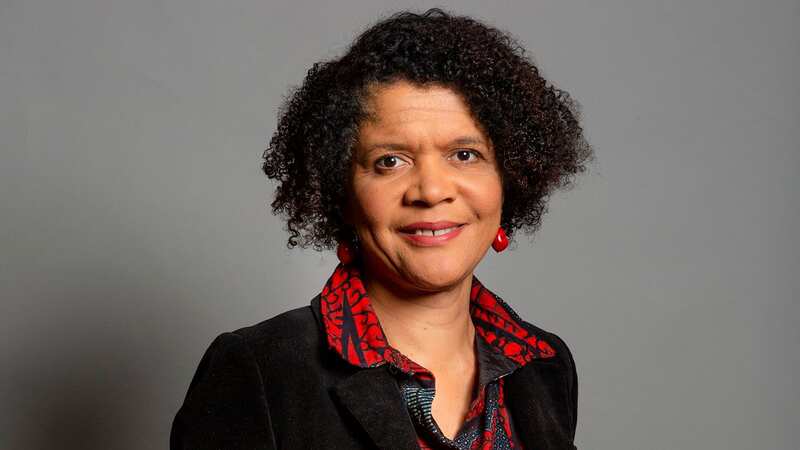'Everyone wins when we get more girls into STEM'

Before I was an MP, I worked as a Chartered Electrical Engineer for two decades. I’ve now spent over a decade as Engineer and MP in the House of Commons. I knew from a young age that I wanted to be an engineer, but I wasn’t aware of any female engineers, which made it hard to argue with those who told me girls did not ‘do engineering.’ I suffered from what I now call Marie Curie Syndrome – the inability to name more than one female scientist or engineer.
When I entered Imperial College London in 1984, my first day involved sitting in an overwhelmingly white, male and privately-educated lecture theatre to learn ‘our’ college song in an atmosphere which I now recognise as a public school debating society. I was annoyed and a little intimidated, but not daunted.
 A recent YouGov poll released ahead of the International Day of Women and Girls in Science on Saturday found that 54.3% of girls don't feel confident learning maths, compared to 41.2% of boys (Getty Images)
A recent YouGov poll released ahead of the International Day of Women and Girls in Science on Saturday found that 54.3% of girls don't feel confident learning maths, compared to 41.2% of boys (Getty Images)I was told I was part of an advance guard of what would soon be an army of female engineers, that engineering would become increasingly gender balanced. Flash forward to2010, the year I was first elected to Parliament, and women still made up only 10.5% of all engineers according to Engineering UK. By 2022, that figure had only risen to 16.5%.
I am personally very grateful for my engineering degree; it was the basis for a wonderful career in professional engineering which took me all over the world. I worked in hardware development and software development. I helped build out Nigeria’s first GSM network; I developed standardised signalling systems for pan-European communications.
However, even today many women are still excluded from pursuing STEM careers. A 2020 report by the All-Party Parliamentary Group on Diversity and Inclusion in STEM, in which I am the chair, found that women make up just 27% of the STEM workforce, compared with 52% of the non-STEM workforce.
 Teachers, civil servants and train drivers walk out in biggest strike in decade
Teachers, civil servants and train drivers walk out in biggest strike in decade
Teach First has commissioned a YouGov poll of more than 1,000 11-to-16-year-olds. According to the survey, 54% of girls said they did not feel confident learning maths, compared to 41% of boys, while over 43% of girls said they did not feel confident learning science, compared with just 26% of boys.
STEM offers such great opportunities for women, and achieving gender parity is critical. Diversity does matter. It is not a tick box exercise. It is an economic imperative. Without it, innovation is stifled, and valuable talent is excluded from the workforce. Empowering women to pursue opportunities in STEM is therefore essential for a thriving workforce and making sure that women’s voices are heard.
Think about the technology we could have had – we could be enjoying it now! – if STEM represented humanity instead of a narrow subsection of it. The people who design our world should understand the full range of our experiences and all our needs. Otherwise not only will tech be unrepresentative, but with AI and other forms of automation, bias may well be embedded and entrenched. I always say if it is not diverse by design it will inevitably be unequal by outcome.
 Shadow Education Secretary Bridget Phillipson has announced plans to help primary school pupils learn numeracy through "real world" teaching (PA)
Shadow Education Secretary Bridget Phillipson has announced plans to help primary school pupils learn numeracy through "real world" teaching (PA)We need to address the barriers young women face finding that first pathway into a STEM career. Too many of our children - both boys and girls - leave primary school without reaching the expected standard in maths. The Prime Minister's focus on getting non-existent maths teachers for the years after GCSE is no more than a gimmick - children need to enjoy maths at six, never mind sixteen. That's why Labour's focus on primary numeracy, announced by Bridget Phillipson at our Conference last year, is so important - a real emphasis on tackling our chronic cultural problem with maths.
And it's crucial that our young people can have not just the dream, but the chance. That's why two key parts of Labour's plan to break down the barriers to opportunity for our young people are funded commitments to deliver professional careers guidance in every school and a full two weeks' worth of work experience for all of our young people. Opportunities to start a STEM career must be open for every child in every school, not a just lucky few with the right connections.
Labour is also looking at ways we can support women early in their careers to encourage them to stay in STEM. For example, we know that having female mentors can vastly improve career progression in fields where the odds are stacked against them. Of course, we can’t achieve that unless we have women entering senior positions in STEM industries. This will help us to address the gender pay gap in STEM, and by extension society at large.
As a country we need to do so much more to encourage women into STEM and the government must do all they can to keep them there. Diversity and inclusion need to be at the heart of our STEM education, employment practices, policy development and digital economy if we wish to thrive. It is essential that STEM jobs are open to everyone, and benefit from the talents of everyone.
Read more similar news:
Comments:
comments powered by Disqus

































